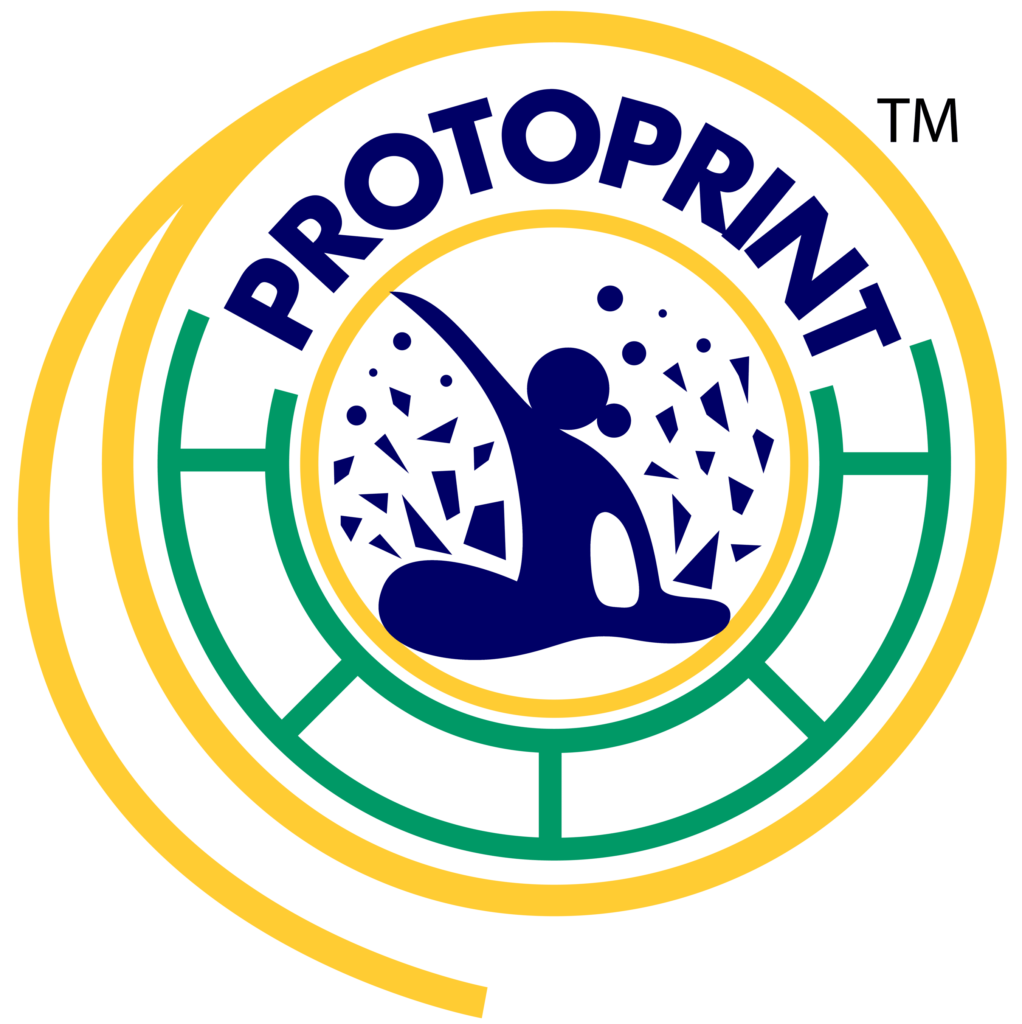
Project Protoprint hosts waste picker leaders of Alliance of Indian Waste Pickers
Roundtable Event
Plastic Free July with Waste Pickers
Context
Project Protoprint warmly welcomed waste picker leaders from across India to its Recycling Unit 1 in Urli Devachi, Pune, India at the start of Plastic-Free July. These leaders were visiting Pune for a policy recommendation meeting organized by SWaCH, KKPKP for the Alliance of Indian Waste Pickers. The roundtable event of Protoprint, provided a forum to discuss the experiences and insights on the recovery of plastics by informal waste pickers and minute differences in the informal recycling landscape in various regions of India.

The event was attended by 30 participants from 20 organizations based out of 7 states of India, including waste picker leaders and their representatives, who toured the recycling unit before the discussion. They learned about Protoprint’s recycling process by interacting with Pune’s waste pickers running the facilities supported by the European Union’s SWITCH Asia program. The participants, most of whom were women, also watched a short documentary on the SWaCH model, led by women and forming the backbone of Pune’s solid waste management.
The discussion covered key topics like sources of plastic collection, fluctuating recycling rates, lack of storage facilities, resin code awareness, and the challenges and opportunities in transitioning long-time informal waste pickers to formal recycling jobs.
Program
- Documentary Screening
Protoprint recycles HDPE and PP plastic through responsible sourcing from the SWaCH collection system, built by waste pickers. The process includes doorstep collection, sorting, and storing various types of plastic and other scrap material before selling. Participants watched a documentary about Pune’s waste pickers and learned about their collection, sorting, and storage system.
- Recycling Unit Tour
After the documentary screening, participants toured the recycling facility. They observed sorting, grinding, washing, density floatation, effluent treatment, dedusting, heating, and extrusion processes. The Protoprint team and waste pickers explained each process in depth and answered questions about the sale of recycled products, key takeaways from the collection chain, and the value addition of Protoprint to waste pickers’ recycling efforts.
- Discussion
Rigid Plastics and their recovery
Waste picker leaders began the discussion by sharing their observations from the visit and reflections on the collection patterns and recycling chain in their cities. The discussion focussed on recovering mixed and separate rigid plastics of various kinds and collection patterns in different regions. The key points of the discussion include:
Participants’ city wise rigid plastic recovery pattern
| City | Types of rigid plastics recovered for recycling | Waste pickers’ terminology | Plastics disposed as rejects |
| Delhi | Mixed rigid plastic – HDPE, PP, PS and PVC(except Milky, White PP and transparent plastic) | Dabba | MLP |
| Mumbai | Sorted HDPE, PP, PS and PVC (MLP is sold to registered recyclers) |
Fuga(Jhap), Kala, Kadak | |
| Bengaluru | Mixed rigid plastic – HDPE, PP, PS and PVC | MLP | |
| Kolhapur | Mixed rigid plastic – HDPE, PP, PS and PVC | Randha | MLP |
| Goa | Mixed rigid plastic – HDPE, PP, PS and PVC | MLP | |
| Hyderabad | Mixed rigid plastic – HDPE, PP, PS and PVC (except saline bottles; sold separately owing to their high rates) | ||
| Patna | Mixed rigid plastic – HDPE, PP, PS and PVC | Than-Than | Majority of flexible plastics disposed as rejects |
Awareness about Resin Identification Codes (RIC)
RICs indicate the type of polymer used in plastic packaging. While they don’t guarantee recyclability and can be misleading, especially with RIC 7 (Other), RICs help identify and sort plastics. During the discussion, only one organization representative knew about RICs and their role in sorting plastics. It was evident that it is not feasible for waste pickers to check these codes and so there’s little or no awareness about what RICs indicate. As a result, waste pickers from many cities sell mixed rigid plastics. This puts a certain question mark on the utility of these codes

Access to storage facilities and selling patterns
Due to limited or no storage space, most waste pickers must sell their recovered scrap daily, focusing only on daily household needs without much savings. In contrast, waste pickers in Hyderabad, Mumbai, Delhi, and Bengaluru with storage and sorting spaces can sell their scrap every fortnight. Waste pickers with storage spaces have also set up collection systems. They store enough material to fill a tempo to its full capacity in one trip. In Hyderabad, Mumbai, Delhi, and Bengaluru, waste pickers can call for a tempo when needed. They also have a network of scrap dealers, allowing them to choose the best rates for their materials. This highlights the crucial importance of accessible storage spaces for waste pickers, linking directly to better recycling and improved livelihoods.
Printed receipts for the sale
Waste pickers from all regions reported not receiving printed receipts for their sales at scrap shops. Some receive handwritten bills on plain paper only when they demand them, particularly when there are pending payments from the scrap shop vendor.
Comparison of scrap sale values: post-covid vs. now
After a sharp rise post-Covid, plastic waste rates significantly declined by 25-50% in every region. Rigid plastics including PET also plummeted compared to post-Covid rates. Only mixed glass, liquor bottles, and footwear rates remained relatively stable.
Waste pickers’ views on formal jobs in recycling
Operators and sorters at Protoprint explained their daily routines that keep the recycling facility running. They shared details about working conditions, monthly pay, savings schemes, insurance, and fixed hours. Waste pickers had mixed reactions to this information. Elderly waste pickers in semi-urban areas preferred formal jobs with fixed hours, monthly salaries, and social security benefits, highlighting the challenges they face collecting waste itinerantly. Conversely, younger waste pickers in cities like Nagpur and Hyderabad, who have better access to waste, preferred continuing in their current informal waste collection streams.

